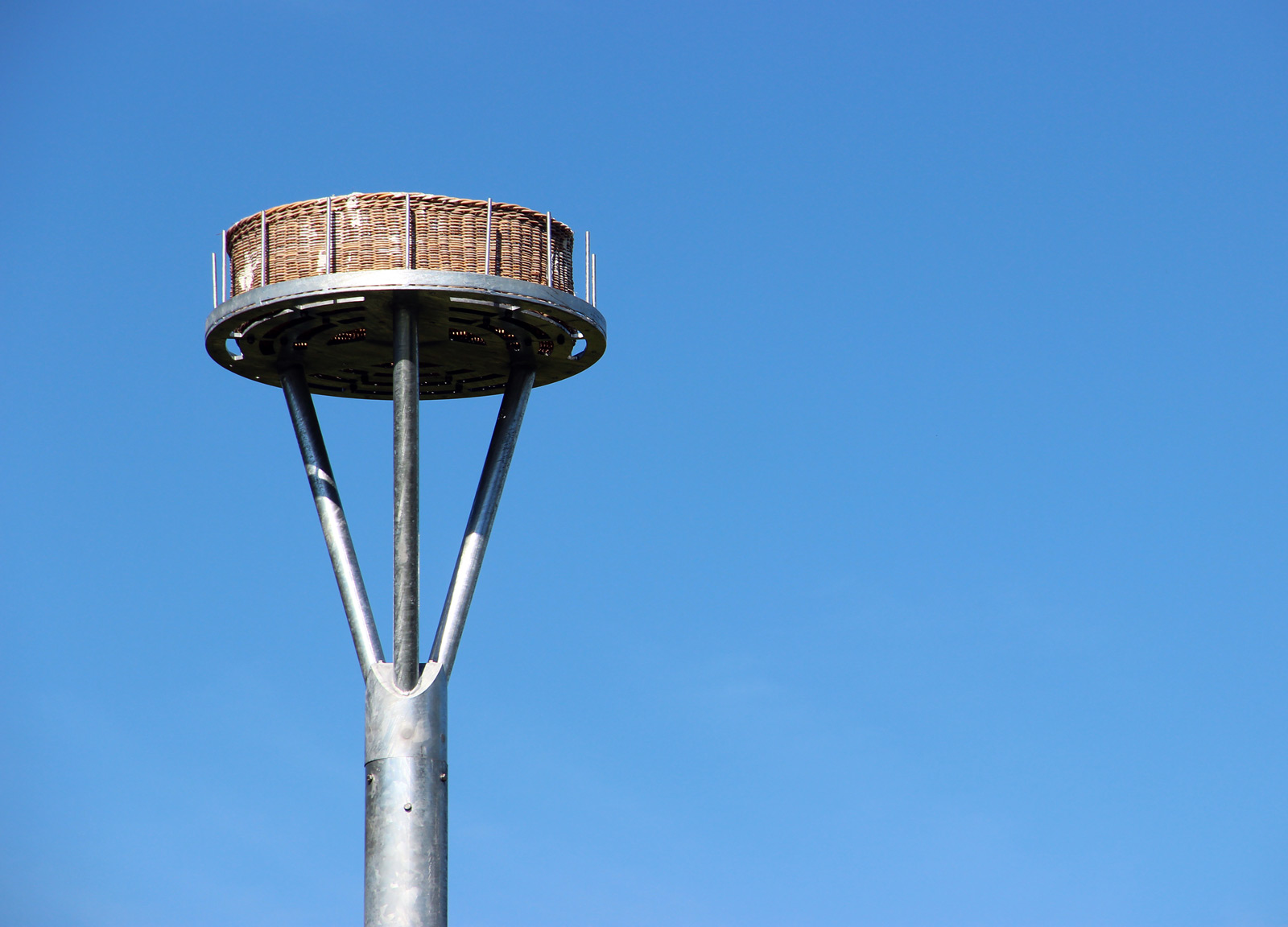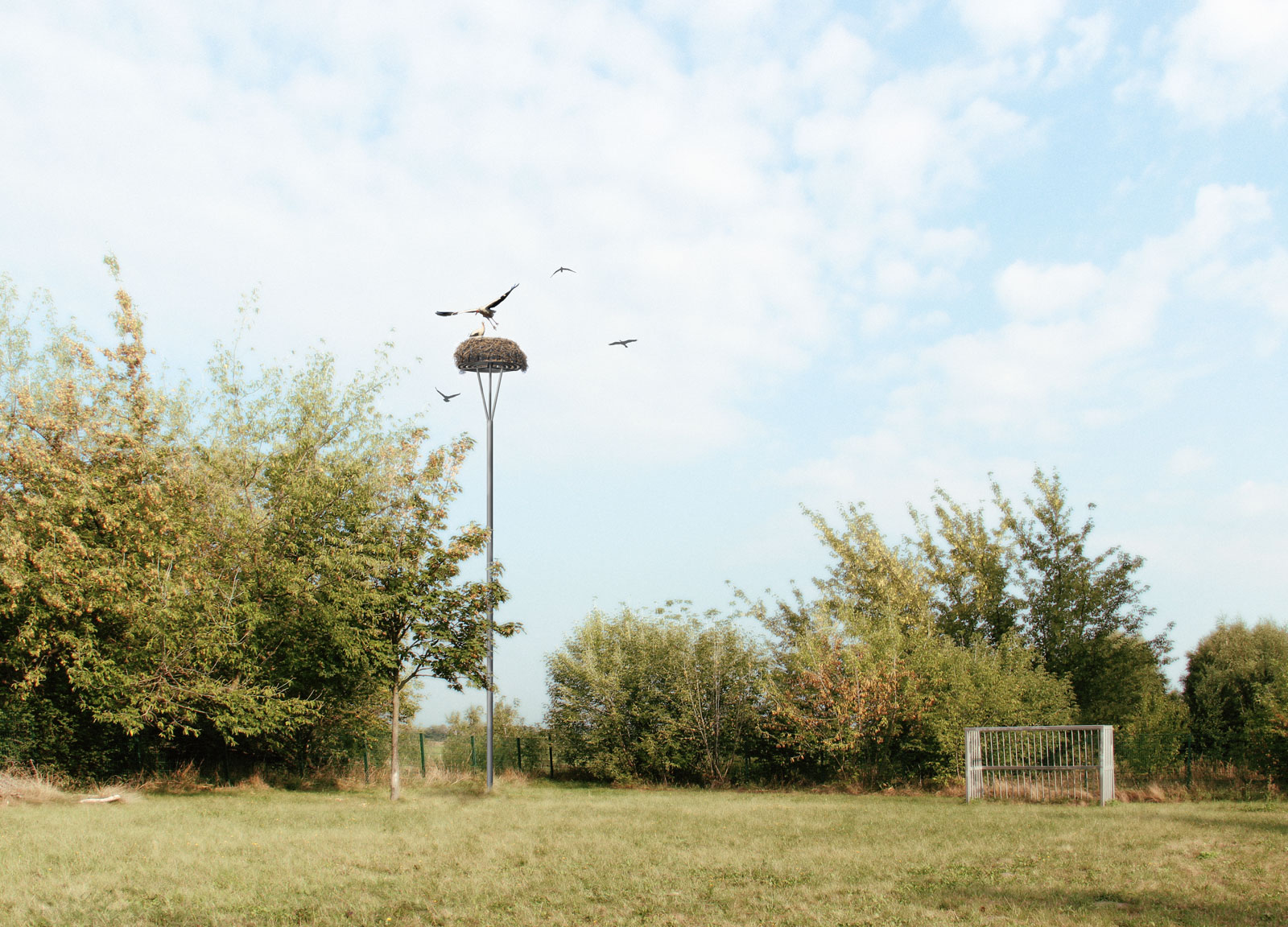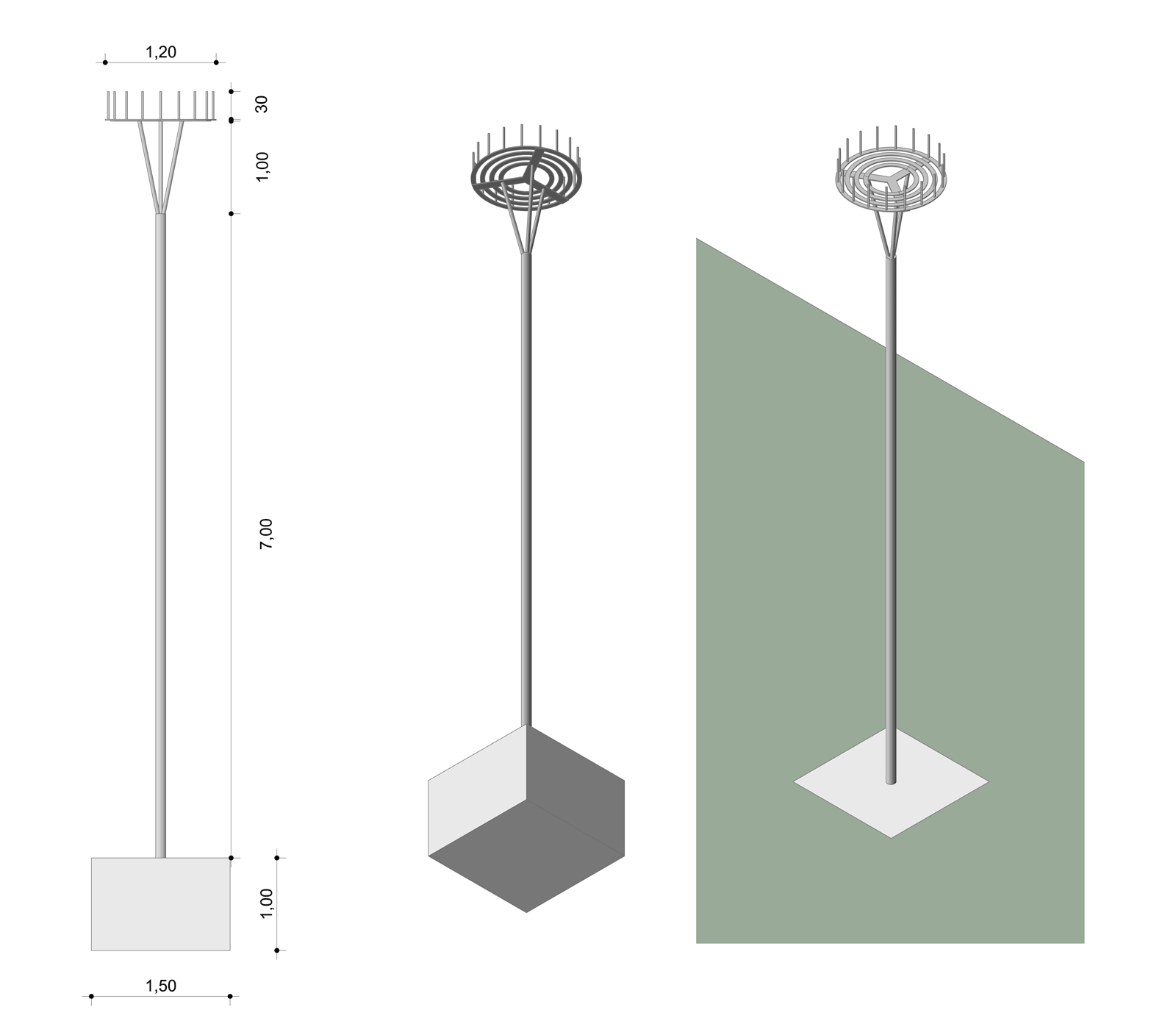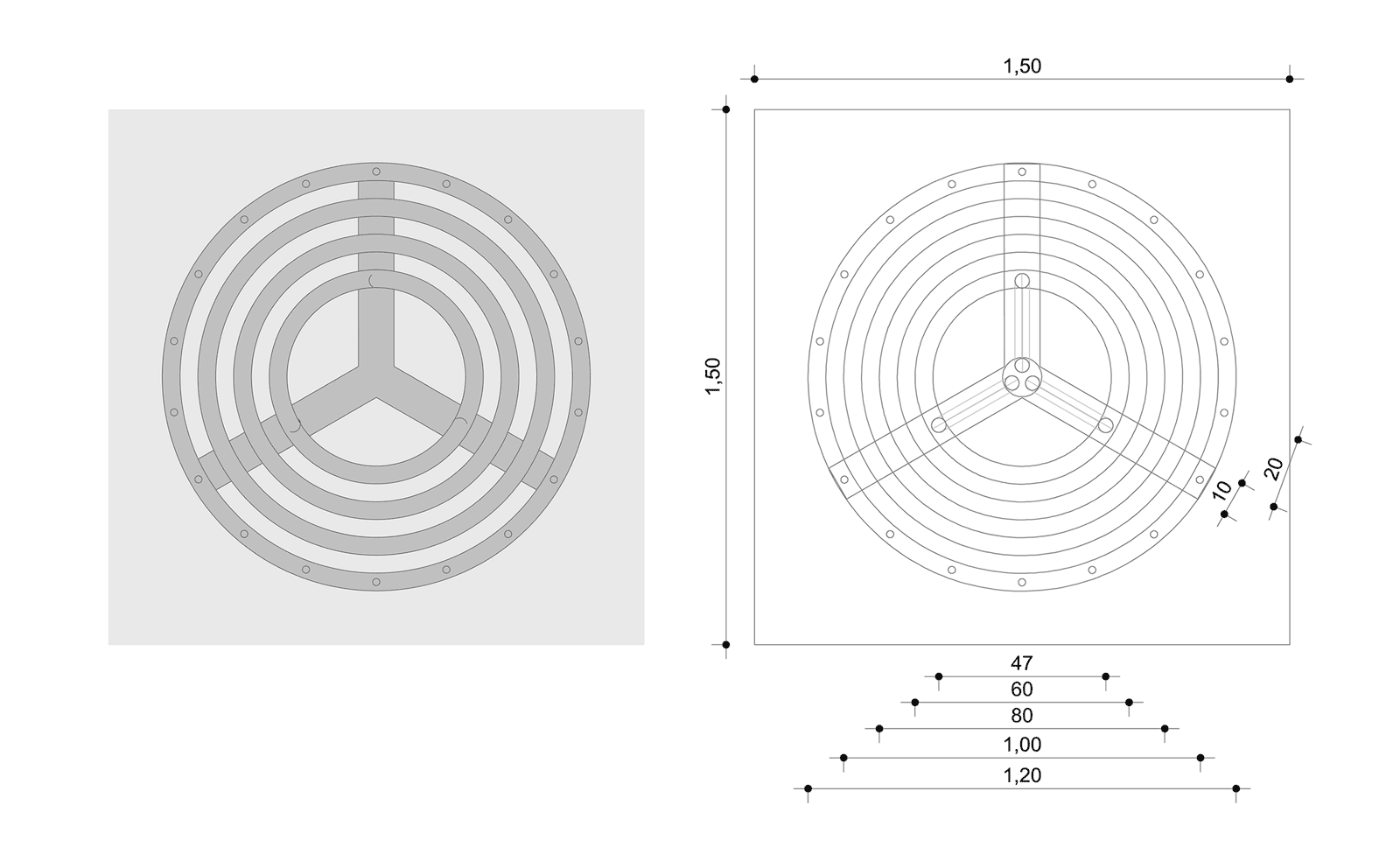Stork Eyrie
Berlin-Lichtenberg
On behalf of the Environmental and Nature Conservation Office Berlin-Lichtenberg, D:4 is building a nesting aid for the endangered white stork.
The project
The white stork, formerly widespread in Central Europe, has been considered a bird species threatened with extinction for the past few years. Due to the draining of wetlands and the conversion of meadows into fields, the nesting possibilities of the white storks in Germany have been increasingly restricted. In recent years, however, the population of this stork species has been significantly improved through better wintering and nesting conditions and more conscious agricultural use.
In the state of Berlin, the district of Lichtenberg is the only habitat of the stork so far. The nesting sites in Malchow and Falkenberg have been well received by the birds in recent years, so that there is a need for a further location. The Wartenberg sports field offers ideal habitat structures due to its proximity to the settlement area, the bordering of open agricultural areas and several small water bodies.
Services
On behalf of the Environmental and Nature Conservation Office of the district of Berlin Lichtenberg, D:4 is entrusted with the planning of a nesting platform. Our services range from the design and participation in the awarding of contracts for construction work to construction supervision.
The nesting aid
The entire construction essentially consists of a mast with nesting platform. The platform at a height of 8 metres is supported by a steel mast, which is spanned by three steel tubes below the platform. The construction is made of galvanized steel and is secured with a concrete foundation, as the storks build several nests on top of each other year after year, which can reach a considerable weight. To counteract the risk of stagnant moisture in the nest, which can cause the young birds to drown or cool down, the steel rings of the nesting platform are spaced apart. Finally, a wicker basket is anchored to this construction, which is manufactured by a Berlin workshop for disabled people. The construction will be erected in the summer of 2017, so that the first storks can settle down next spring.
In cooperation with the engineering office Trabert + Partner.




